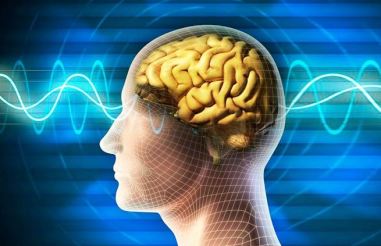 What specialist treats disorders of the nervous system?
What specialist treats disorders of the nervous system?
Specialists, who from different angles suitable for solving this problem, quite a lot: it’s neurologists, psychologists, psychotherapists, psychiatrists. In doing so they can also share at a narrow specialties. For example, among psychotherapists -. Psychoanalysts, Gestalt-therapists, etc. To which the doctor and in what case ask for help?
Nervous system
The nervous system ensures the regulation of the activities of all other organs and systems of the body, as well as an adequate reaction of the body to external conditions. Psyche – is one of the functions of the nervous system.
So neurologist treats diseases of the nervous system, and a psychiatrist – mental illness. Psychotherapy – a therapeutic effect, carried out through the sphere of the psyche.
Types of nervous system disorders
- Organic – this is when there are objective disturbances in cells, organs, tissues (tumor, multiple sclerosis, Alzheimer’s disease, etc.). With organic disorders of the nervous system deals a neurologist.
- Functional disorders – this is when there are violations of mental functions – one of the functions of the nervous system. Its violations are engaged professionals – psychiatrists, psychotherapists, etc.
- Violations of other functions of the nervous system are mainly engaged neurologists. For example, they treat a cognitive impairment – memory, attention, concentration, abnormalities in the vestibular system – dizziness, etc.
Minor organic disorders of the nervous system inevitably accumulate with age in any person, as a result of aging vessels, which leads to insufficient blood supply of the central nervous system. In addition, it happens that during the life of a person suffers injury, infectious or inflammatory disease of the nervous system (encephalitis, meningitis), to abuse alcohol. All this also leads to organic changes in the nervous system.
Unfortunately, in one way or another the mental disorders is almost always accompanied an organic disorders of the nervous system, so in these cases, the desired help of a psychologist, psychotherapist, or even a psychiatrist.
In addition, a Psychiatrist or Psychotherapist is needed when there are functional mental disorders without organic reason – for example, schizophrenia, psychopathy (personality disorder), reactive states (a consequence of stress or emotional overload) and others.
Difference between a Psychiatrist, Psychotherapist
Medical Psychotherapists are fully-qualified doctors who have qualified in psychiatry and then undertaken a three or four-year specialist training in psychotherapy. Their role is in the psychotherapeutic treatment of patients with psychiatric illnesses: stress, emotional and relationship problems or troublesome habits.
There are many different approaches in psychotherapy:
- systemic and family psychotherapy
- cognitive behavioural therapies
- psychoanalytic and psychodynamic therapies
- arts and play therapies
- humanistic and integrative psychotherapies
- hypno-psychotherapy
- experiential constructivist therapies
Psychiatrist is a Medical specialist who has graduated from a medical school. The term psychiatry refers to the study of mental disorders: diagnosis, management and prevention. Psychiatrists often work on a broad range of cases alongside an area of expertise and research.
In order to be a psychiatrist you must train for five years as a doctor. A further two years of ‘foundation’ jobs is needed before specialising in psychiatry. To become a fully trained psychiatrist it typically takes another four years of dedicated study.
Psychiatrists work with those with more severe conditions and those that require medical intervention. For the most part, psychiatrists now do psychiatric evaluations for the purpose of determining if an individual would be appropriate for treatment with medications.
What is psychologist?
Psychology is effectively the study of the way people think, behave and interact. Looking at the way the mind works, psychology covers everyday functioning such as learning and remembering. It also covers more complex mental health conditions.
To obtain the title of psychologist, an individual would need to gain a degree in psychology. To become a counselling psychologist they will need a degree in psychology and a Doctorate in counselling psychology. Counselling psychologists are a fairly new group of applied psychologists. They blend therapeutic practice with psychological research and theory.
Psychologists can specialise in a number of areas, such as mental health and educational and occupational psychology. In health care, psychologists specialise in clinical, counselling, forensic or health psychology.
Psychologist does not prescribe medication. Instead, they provide psychotherapy through their in-depth knowledge of psychological theory, therapy, research and diagnostic testing. Psychologists also specialize in psychological testing and are the only group of clinicians trained to do so.
